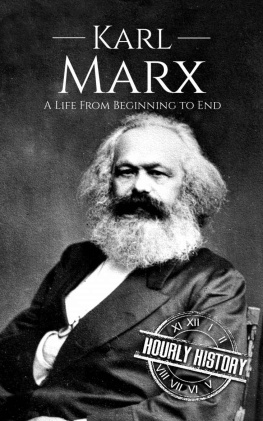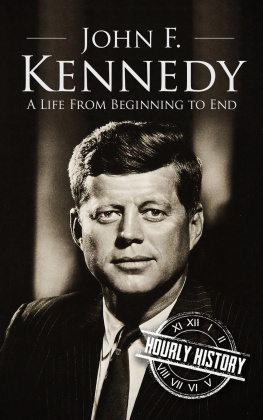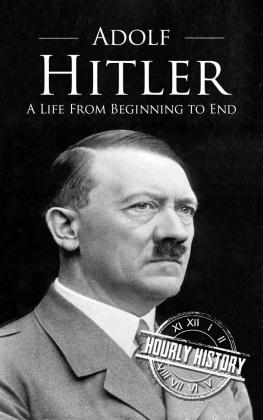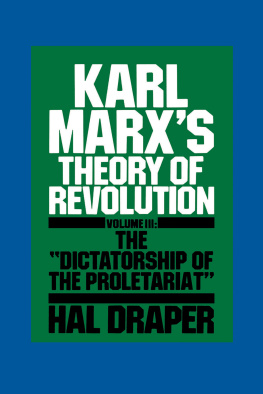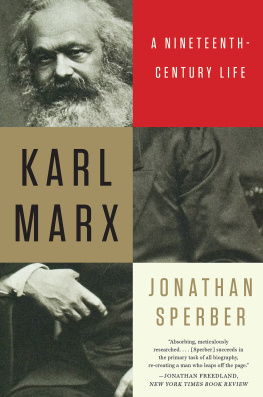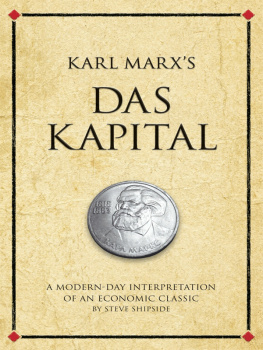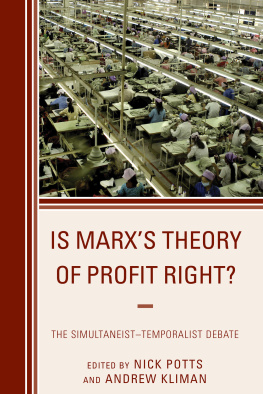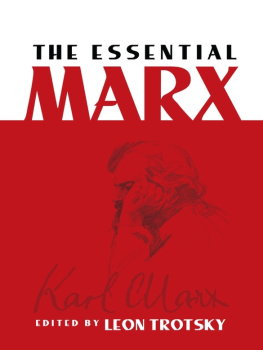KARL MARX
A Life from Beginning to End
Copyright 2017 by Hourly History.
All rights reserved.
Table of Contents
Introduction
Karl Marx was a professional philosopher, he not only majored in the subject in college but he also sought to instill his philosophical aspirations on others. He made a livingas scarce as it wasas a journalist, and he passed his time as an intellectual provocateur. There can be no mistake; Marx was a revolutionary, but unlike the men he would later inspire, such as Lenin and Trotsky, he eschewed the spotlight.
Karl Marx was not so much physically involved in the revolutionary ideas he so often espoused; he just wrote them down. Marx was perfectly amiable in his cluttered study, quietly writing down his thoughts, and he never hurt a fly in doing so. Still, it was his writing that would inspire leaders and ideologues the world over, such as Stalin and Mao Zedong.
If anything, Karl Marxs life reminds us of the power of the pen over the sword. During his actual lifetime, he lived in relative obscurity. Rather than making any waves, Marx was usually lucky just to make the rent. And to make the ongoing hardship of his life even worse, Karl Marx was afflicted with boils from the top of his head to the soles of his feet. This painful skin condition in his later years made even his beloved vocation of writing rather difficult. But his pen would indeed demonstrate its power, and by the time 70-some years had passed since his demise, one-third of the entire planet would be living under regimes based upon his ideology. Love him or hate him, the power of Karl Marxs pen, and his legacy, cannot be denied.
Chapter One
The Makings of a Revolutionary
Men make their own history, but they do not make it as they please.
Karl Marx
Karl Marx may have created an entire ideology based on the struggles of the working class, but he was himself of an upper middle-class background. He was born in the comfortable confines of Trier, Germany on May 5, 1818.
Before Trier became known as the birthplace of Karl Marx, it was already a historic town known for its Roman ruins and its classic vineyards which were more like something you would find in the breadbasket of Italy than the German Rhineland. Sociologically and politically Trier was a bit of a transplant as well.
Ever since the Napoleonic occupation of the region, Trier had been flooded with all kinds of French ideologies and early thoughts on just the kind of utopian socialism that would lead to Karl Marxs vision of communism. But as much intellectual idealism that the French Revolution had brought on, it was still often an inhospitable world if you happened to be of the Jewish faith.
The Napoleonic laws that had been imposed on the Rhineland region had attempted to give a small measure of equality to the Jews, but at the same time sought to curtail Jewish business and commerce. The Napoleonic Code created discriminatory and restrictive laws for anyone who happened to be born of Jewish faith and ancestry.
Draconian measures that were sugar coated with idealism sought to snuff out centuries of progress that Jewish-Germans had made in the region. Karl Marxs father Heinrich Marxthough not particularly observant when it came to Judaismhad sought to struggle against this unfair legislation. And when the French were finally evicted by the Prussian government in 1818, he vigorously lobbied for these economic restraints to be removed.
Although the intervening Prussian authority rolled back most of Napoleons changes to the rule of law, the one thing they decided to retain was the Napoleonic Code that had crippled Jewish commerce. In the end, under such unbearable pressure, Karls father Heinrich decided it would be better to convert to Christianity than to have to face such dire economic sanctions. It was a conversion of necessity, and Heinrich Marx finalized it by having himself officially baptized as a Protestant of the Christian faith in the summer of 1817. This semi-forced and coerced conversion would come to haunt Heinrich and by extension his son Karl Marx, who would one day disavow all religion as nothing more than the deluded opiate of the masses.
Chapter Two
The Young Philosopher
Let the ruling classes tremble at a communist revolution. The proletarians have nothing to lose but their chains. They have a world to win. Workingmen of all countries, unite!
Karl Marx
Growing up, Karl Marx was known as a lively, if not rambunctious child. He was primarily homeschooled during his early years until his entrance into high school in 1830. The school had a fairly liberal bent, and Marx was inundated with all the humanist classics of the Enlightenment. An early mentor of Marx was the High Schools headmaster, Hugo Wyttenbach.
This headmaster took the young Karl under his wing and helped to develop some of his early philosophical interests. Wyttenbach proved to be a bit too outspoken for his own good, however, and after he held a rally calling for more freedom of the press in 1832, he was officially placed under surveillance by the authorities, and the entire high school was searched for anything considered inflammatory to the rule of law.
In spite of the crackdown, the young Marx continued his studies unabated, and graduated at 17 years of age, heading to the University of Bonn in October 1835. Karl Marx was originally enrolled as a law student and took on a full course load of classes during his first semester. But by the time his second semester had rolled around in 1836, Marx was fatigued and overworked and had to reduce his attendance to a part time status.
During this period, Marx also made it a habit to have nightly episodes of carousing as one of his extracurricular activities. On one occasion he was even arrested for public intoxication and detained by the university for 24 hours as punishment. By years end, Karl Marxs father had apparently had enough of his antics at the University of Bonn and insisted that he transfer to the University of Berlin where he hoped he could better focus on his academic curriculum.
Before his transfer to Berlin, Marx arrived back home to spend the summer in Trier. Here he took up with Jenny von Westphalen, a woman four years older than him, but whom he had known since his childhood. The two were engaged to be married despite some initial friction between their families. With this advancement of his personal life, Marx left Trier once again by October 1836 to fulfill his fathers desire for him to become a serious academic.
Berlin at that time was a city only second to Vienna in population and intellectual diversity. Here Marx poured himself into his studies and joined several student associations as he expanded his philosophical world view and worked on his essays and treatises. His academic career was bright and would only be tempered by the death of his beloved father Heinrich in May 1838.
Karl Marx would go on to nourish and cherish the memory of his father for the rest of his life. He seemed to have a true bond with Heinrich that went well beyond the monetary favors that his father had granted him. But even so, it was the latter diminishment of material wealth that had the most immediate and visceral effect upon young Karl Marxs life. Karls ability to financially support himself was greatly reduced without the aid of his father.
This financial strain soon became a source of concern for the Westphalenshis bride-to-bes familywho became increasingly convinced that Karl would not be able to support their daughter well enough to take her hand in marriage. But despite these misgivings, Karl Marx continued to court her nonetheless.

